Few things in life are as rewarding as making homemade pickles.
Which, I know, sounds absolutely bizarre, but is completely true nonetheless.
I used Maldon Sea Salt Flakes to make my pickles. Aren’t they pretty?
Once you make these pickles and realize just how quick they are to make (of course not counting the two days they need to brine in the fridge – but I don’t think we should count that time because you can absolutely forget about them then), and how delicious they are, I think you’ll be hooked. And not only will you try to find a constant source of cute little pickling cucumbers, but you might just realize that next February in the dead of winter you most likely will not have access to fresh cucs, and therefore will not be able to make these pickles.
And I’m not speaking from experience or anything, but you might just be tempted to grow your own cucumber plant when that thought hits you.
They are that good.
But if lacto-fermentation is more your thing and you don’t have a hankering for pickles that needs to be satiated in 48 hours, then my recipe for pickles in my cookbook is the one for you. Either way, your pickle craving is sure to be satisfied, and any pickle crises that may have possibly ensued from lack of pickles is sure to be averted.
- 1¾ cups (415 ml) water
- ¼ cup + 2 tablespoons (90 ml) distilled white vinegar
- 1 tablespoon sea salt flakes
- ½ teaspoon whole peppercorns
- 5 whole juniper berries
- 3 whole allspice berries
- 3 cloves garlic, peeled
- 7-10 Kirby cucumbers (also called Pickling cucumbers) cucumbers (about 625 to 675 g), washed and ends slightly trimmed
- ½ oz (15 g) fresh dill leaves (on the stem), rinsed (optional; this not only increases the dill flavor, but is also there for looks)
- 1 teaspoon dill seed (see note below)
- Purified water, as necessary
- Add 1¾ cups water, the vinegar, and the salt to a small saucepan over medium heat; bring to a simmer, stirring to dissolve the salt, and then turn off heat. Add the peppercorns, juniper berries, and allspice berries and cool to room temperature. (Or for less pronounced flavors, add the spices to the liquid once it’s already cooled.)
- Meanwhile, sterilize a 1-liter glass jar.
- Cut the cucumbers into spears by cutting them in half lengthwise, and then cutting each half lengthwise into 2 or 3 equal pieces, depending how large you like your pickles.
- Put 2 cloves of garlic in the bottom of the jar. Add the cucumber spears and fresh dill (if using), and then add the remaining garlic and the dill seed on top.
- Pour in the vinegar mixture (with the spices), then add enough purified water so that the cucumbers are completely covered, leaving about 1 inch of free space at the top.
- Cover the jar and store refrigerated for 48 hours before eating. Stored in the fridge, these pickles will keep for up to a couple weeks.
Disclosure: This post contains Amazon affiliate links to products I believe in, which means that even though it doesn’t cost you anything extra, I will receive a small amount of money from the sale of these items, which helps me keep this site alive – thank you for helping to support An Edible Mosaic!

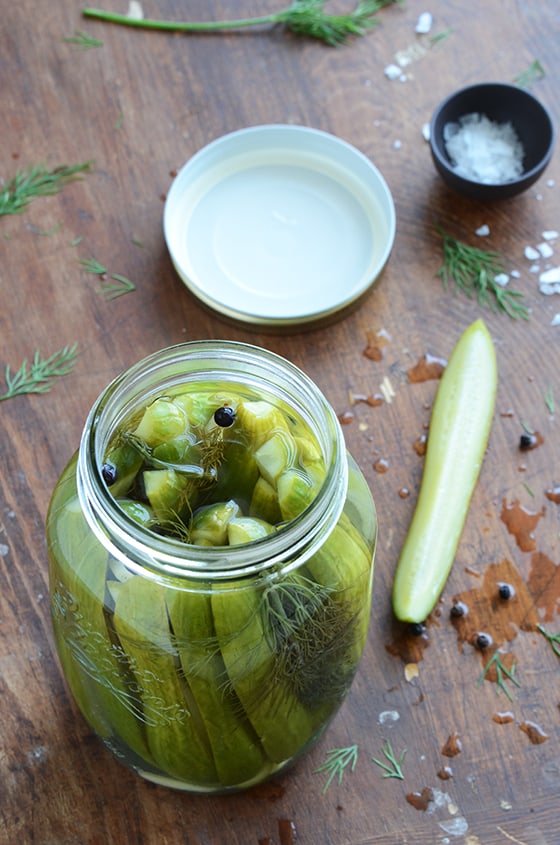
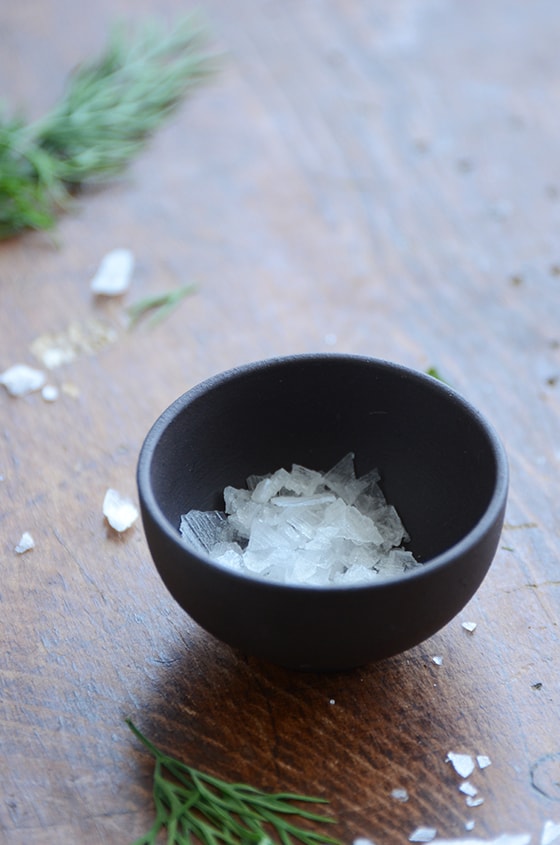
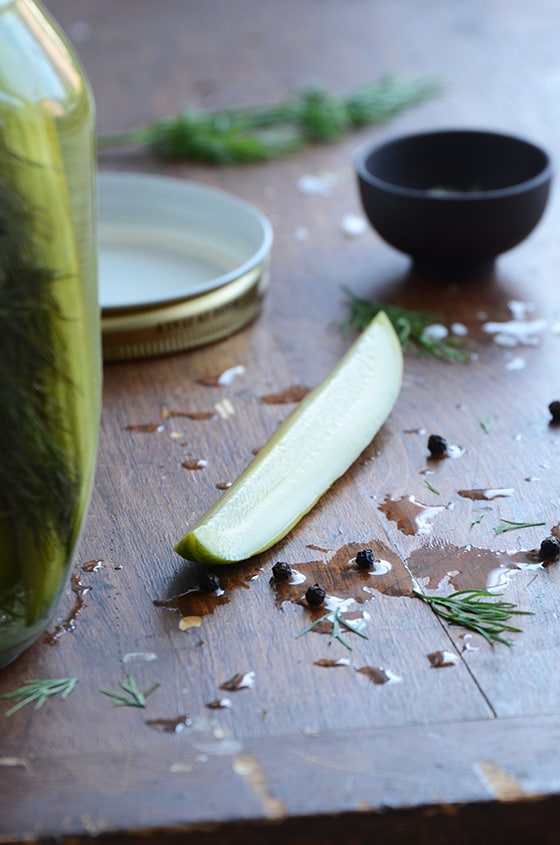
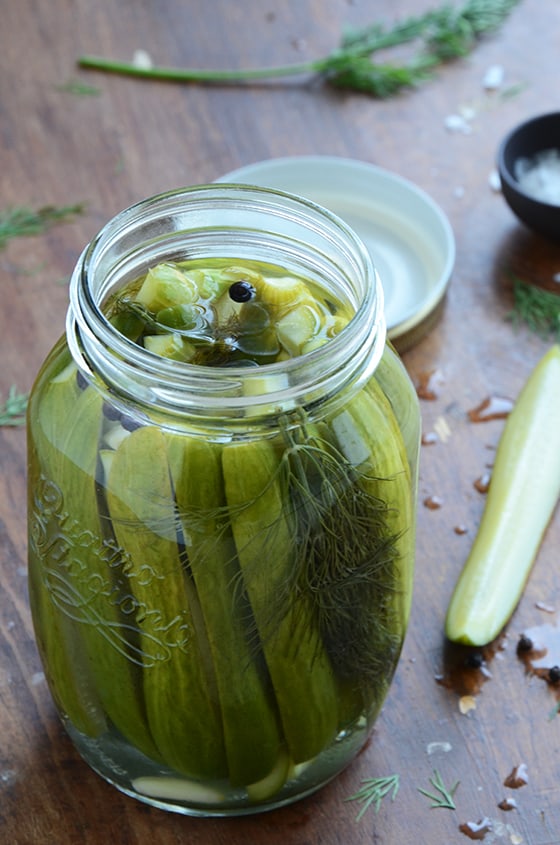
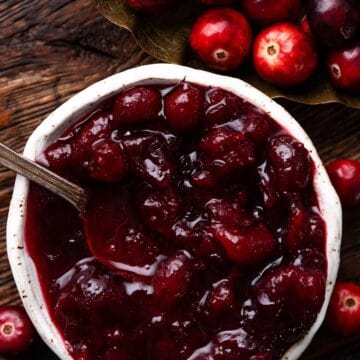
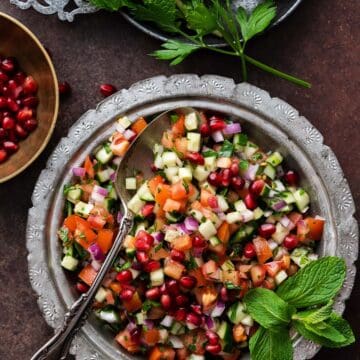
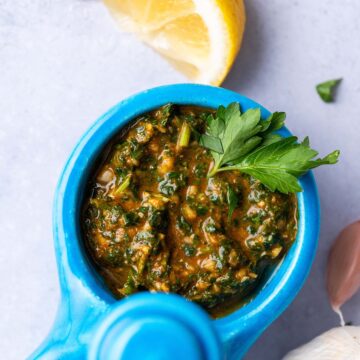
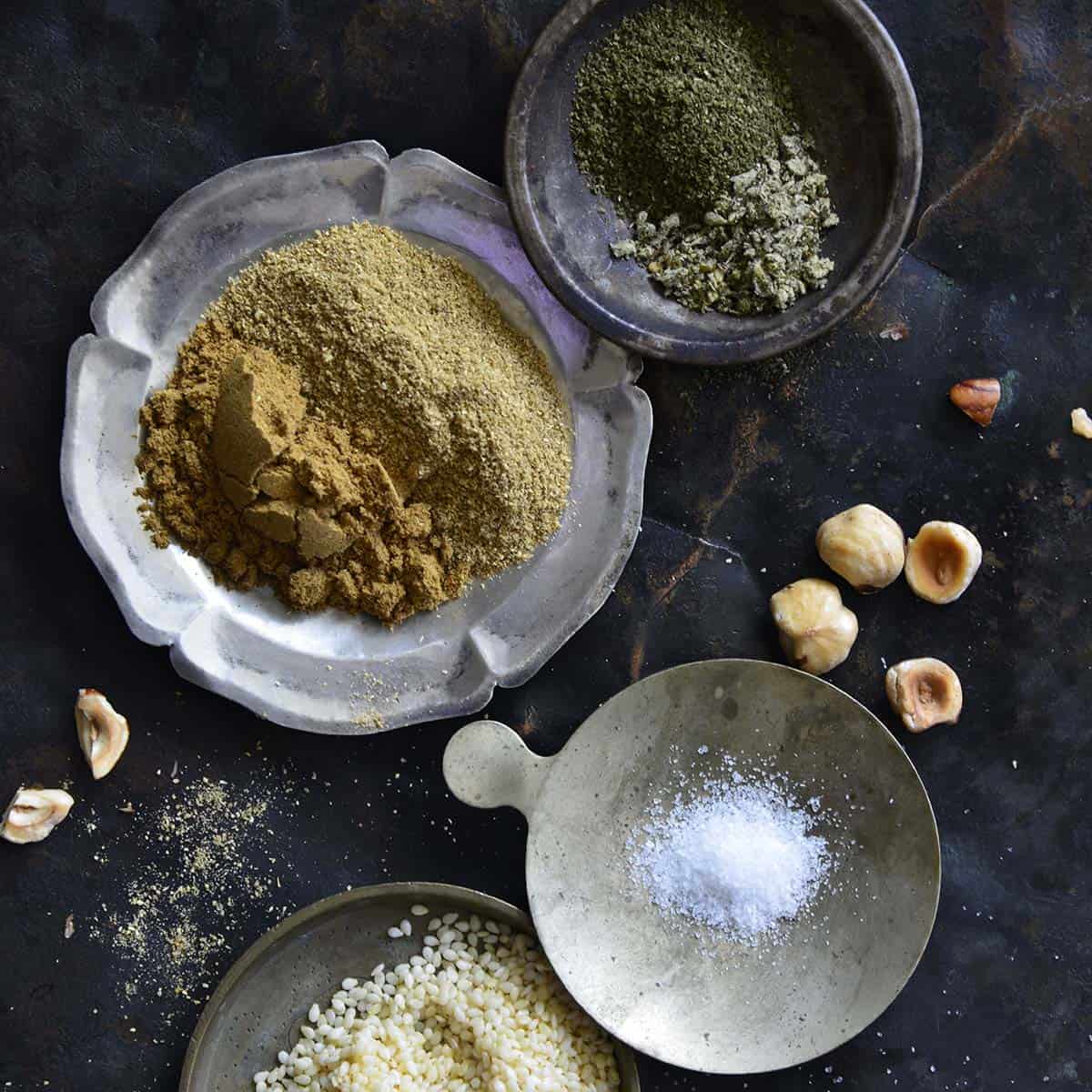
felice says
Just pulled a successful batch of lacto-cuc pickles out of my crock using some juniper berries I had instead of the grape, oak or horseradish leaves I usually use for tannins to prevent hollow pickles. Found your fabulous blog googling to see if my success was a fluke or if there are those good tannins in Juniper. Do you know? Have never tried quick pickles, but your lovely recipe is a timely find as I've got a glut of garden cucs too big for facto-fermentation....off to try it. :) Thanks!
Billy says
Your recipe looks delicious! Its been a little while since I've made my own cucumber pickles at home - and your recipe inspired me to do it again! Definitely love that you added garlic. Thank you for sharing!
Rebekah says
Will these not work with just the cucumbers you pick up at the store? I buy most of my cucumbers at Aldi, and I'm pretty sure even the Aldi clerks have no idea what "type" they are. :D
Faith says
Rebekah, Many people prefer using pickling cucumbers (Kirby cucumbers) over regular garden-variety cucs for pickling because Kirby cucs are generally a bit more crisp, have fewer seeds, and have less bitter skin. If those factors aren't an issue for you, I've heard that regular cucs will also work. Hope you enjoy them if you give them a try!
Ash-foodfashionparty says
These would be so perfect in a food basket gift. Love simple home made pickles.
nancy at good food matters says
those pickles do look delicious. (and a great use for those dried juniper berries I have hardly used in my spice pantry!)
Joanne says
The.Boy's mom gifted us with five million cucumbers recently so I think the vast majority are destined for these pickles!! Love em.
Debbie says
Would this work with apple cider instead of white distilled and leave everything else the same?
Faith says
Debbie, Yes, apple cider vinegar would be a great substitute and leave everything else the same. Hope you enjoy the pickles if you make them!
Laura (Tutti Dolci) says
There's nothing better than homemade dill pickles!
Evelyne@cheapethniceatz says
I must admit I have very little pickling experience, but this makes me want to go by kirbies right now. Love the simplicity of the recipe.
Eileen says
You're totally right--pickles are absolutely one of the most satisfying things to make. There's just something about that transformation. These pickles sound super classic & delicious!
Alyssa (Everyday Maven) says
These are beautiful Faith! They would make such a wonderful gift as well :)
dixya| food, pleasure, and health says
homemade stuff are so rewarding. these pickles look sooo good.